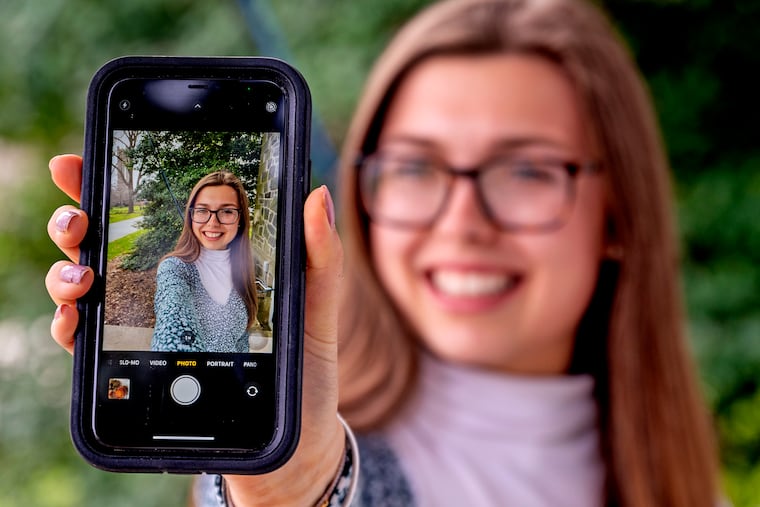TikTok got me through the pandemic. Then its algorithm turned on me. | Opinion
As a college student majoring in computer science, I've learned how the algorithms behind social media can hurt Gen Zers like me.

Parents are quick to blame TikTok for all of Gen Z’s ailments. Struggling with depression? You’re spending too much time on TikTok. Struggling with social anxiety? You’re spending too much time on TikTok. Struggling with your journey to wear low-rise straight-leg jeans? You’re definitely spending too much time on TikTok.
As a member of Gen Z myself, these accusations feel like a threat to our way of life. Unfortunately, our parents might be right, and TikTok isn’t so great for our mental health. But the solutions they propose are dead wrong.
Adults have an easy fix for us: Just use TikTok less, delete the app, live off the grid. But since almost every teenager is on TikTok, anyone who stops will feel socially isolated. Not only is this solution nearly impossible for most teens, it is not the correct frame of mind. The problem is actually TikTok, not us.
When social media begins to take on an outsized role in someone’s life, the prevailing narrative — one that is happily supported by social media companies — is that the obsession is the fault of the users, not the companies. Consequently, much of the discussion centers around users using self-control to preserve their mental health while using social media. This is similar to how our society treats alcohol consumption — it is up to the individual to self-regulate. However, an estimated 95,000 people die from alcohol-related causes annually, making alcohol the third-leading preventable cause of death in the United States. The current norms around alcohol use are clearly not working for the betterment of society, so why should we expect the same with social media?
» READ MORE: Teens are using TikTok to talk about mental health, relationship abuse, and sexuality
Of course, we can’t totally equate an obsession with social media to a chemical dependency on alcohol, but there are clear negative effects of spending too much time on social media.
As a college student studying computer science, I’ve learned that social media’s algorithms are biased in ways that most people cannot even imagine. One major issue is that anyone is at risk of seeing content that they would not seek on their own. This was recently exposed in the Facebook algorithm where, for example, someone who joined political and Christian groups was recommended to join QAnon groups without ever searching for them. Teens can be introduced to ideas such as self-harm and restrictive eating by simply scrolling, without ever making an active choice to opt into this content.
“Teens can be introduced to ideas such as self-harm and restrictive eating by simply scrolling, without ever making an active choice to opt into this content.”
Research shows that people suffering from mental health issues spend more time on social media. Even if that’s correlation, not causation — meaning, mental health problems attract people to social media, but aren’t caused by it — these users will contribute more to the algorithm that judges what material is popular, based on user interest. Since a disproportionate amount of time on social media is spent by users who have depression and anxiety, their outsized interest in content that triggers these issues will cause social media apps to promote that content to others.
This happened to me. Like many other teenagers living through the pandemic, TikTok was a distraction that included fun dog videos and interesting recipes — until it was not fun anymore. My love of cooking and baking videos influenced the algorithm to start showing me “What I Eat in a Day” videos. Many of these videos are produced by fitness and health creators who encourage habits such as calorie counting and tracking. I was instantly hooked, and the algorithm showed me more and more videos. I soon developed a negative body image and relationship with food and started comparing myself to these creators, and began obsessing over protein content and ingredient lists. What started as just viewing TikToks developed into a diagnosis of anorexia. I never choose to begin watching these videos; the algorithm chose for me.
In order to battle the current mental health crisis plaguing my generation, we need more than just screen time settings. Social media companies need to take accountability for their products. One way to enhance social media for the benefit of users (and not the bottom lines of these companies) is creating design friction — in simple terms, you slow down the flow of information.
Twitter did this recently by asking readers if they want to read a link before retweeting it. TikTok could do something similar, perhaps slow down the rate at which it displays videos as you continue to scroll for an extended period of time. Yes, this would make the experience less pleasant, but it would discourage users from wasting their life on their phones — and less time on their phones means less unwelcome content.
Another way to have a more ethical design would be to increase transparency for users. Users should be allowed to understand how this algorithm works and how to put a stop to it.
The problem is not just that Gen Zers like myself lack self-control — it is also that social media companies lack accountability in their design. So to my fellow scrollers, I say: It’s really not you, it’s TikTok.
Belle Romea is a computer science major at Swarthmore College.